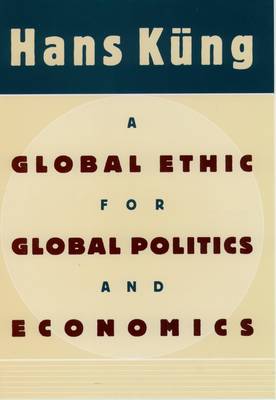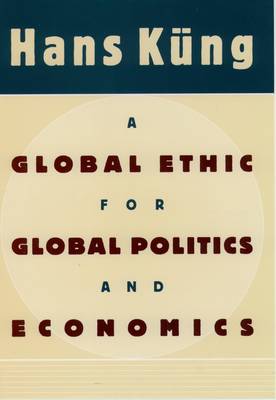
- Retrait gratuit dans votre magasin Club
- 7.000.000 titres dans notre catalogue
- Payer en toute sécurité
- Toujours un magasin près de chez vous
- Retrait gratuit dans votre magasin Club
- 7.000.000 titres dans notre catalogue
- Payer en toute sécurité
- Toujours un magasin près de chez vous
Description
As the twentieth century draws to a close and the rush to globalization gathers momentum, political and economic considerations are crowding out vital ethical questions about the shape of our future. Now, Hans Küng, one of the world's preeminent Christian theologians, explores these issues in a visionary and cautionary look at the coming global society.
How can the new world order of the twenty first century avoid the horrors of the twentieth? Will nations form a real community or continue to aggressively pursue their own interests? Will the Machiavellian approaches of the past prevail over idealism and a more humanitarian politics? What role can religion play in a world increasingly dominated by transnational corporations? Küng tackles these and many other questions with the insight and moral authority that comes from a lifetime's devotion to the search for justice and human dignity. Arguing against both an amoral realpolitik and an immoral resurgence of laissez faire economics, Küng defines a comprehensive ethic founded on the bedrock of mutual respect and humane treatment of all beings that would encompass the ecological, legal, technological, and social patterns that are reshaping civilization. If we are going to have a global economy, a global technology, a global media, Küng argues, we must also have a global ethic to which all nations, and peoples of the most varied backgrounds and beliefs, can commit themselves. "The world," he says, "is not going to be held together by the Internet."
For anyone concerned about the world we are creating, A Global Ethic for Global Politics and Economics offers equal measures of informed analysis, compassionate foresight, and wise counsel.
How can the new world order of the twenty first century avoid the horrors of the twentieth? Will nations form a real community or continue to aggressively pursue their own interests? Will the Machiavellian approaches of the past prevail over idealism and a more humanitarian politics? What role can religion play in a world increasingly dominated by transnational corporations? Küng tackles these and many other questions with the insight and moral authority that comes from a lifetime's devotion to the search for justice and human dignity. Arguing against both an amoral realpolitik and an immoral resurgence of laissez faire economics, Küng defines a comprehensive ethic founded on the bedrock of mutual respect and humane treatment of all beings that would encompass the ecological, legal, technological, and social patterns that are reshaping civilization. If we are going to have a global economy, a global technology, a global media, Küng argues, we must also have a global ethic to which all nations, and peoples of the most varied backgrounds and beliefs, can commit themselves. "The world," he says, "is not going to be held together by the Internet."
For anyone concerned about the world we are creating, A Global Ethic for Global Politics and Economics offers equal measures of informed analysis, compassionate foresight, and wise counsel.
Spécifications
Parties prenantes
- Auteur(s) :
- Editeur:
Contenu
- Nombre de pages :
- 336
- Langue:
- Anglais
Caractéristiques
- EAN:
- 9780195122282
- Date de parution :
- 16-04-98
- Format:
- Livre relié
- Format numérique:
- Genaaid
- Dimensions :
- 163 mm x 244 mm
- Poids :
- 607 g







